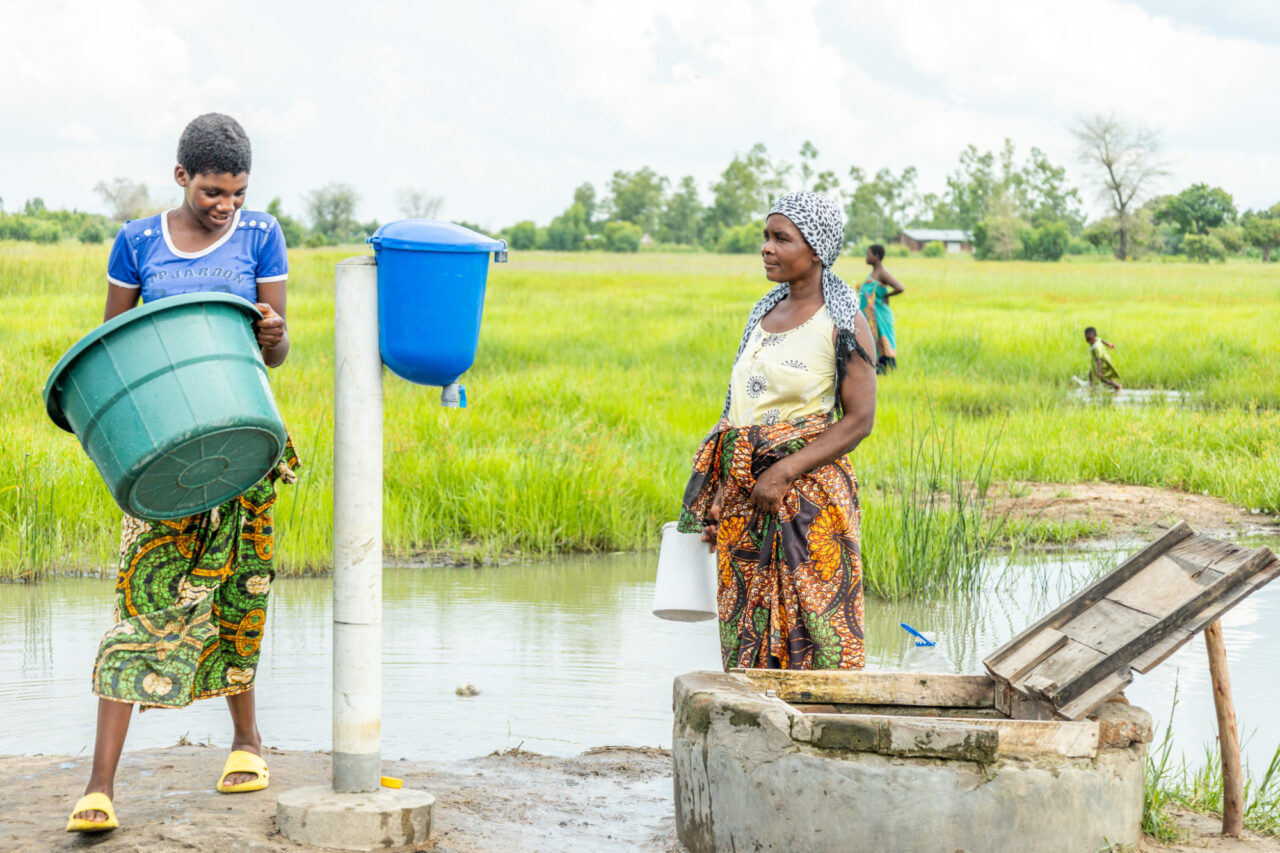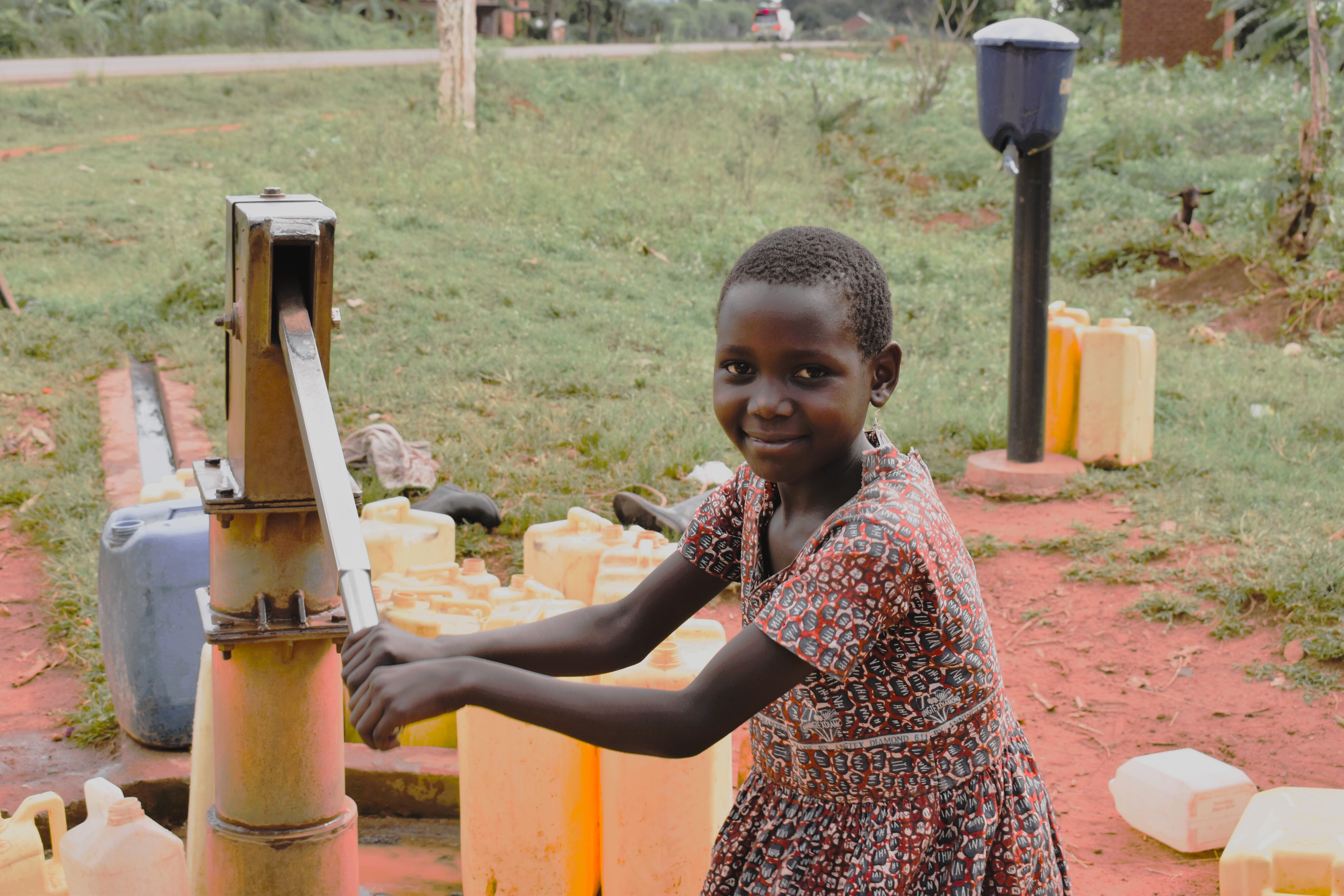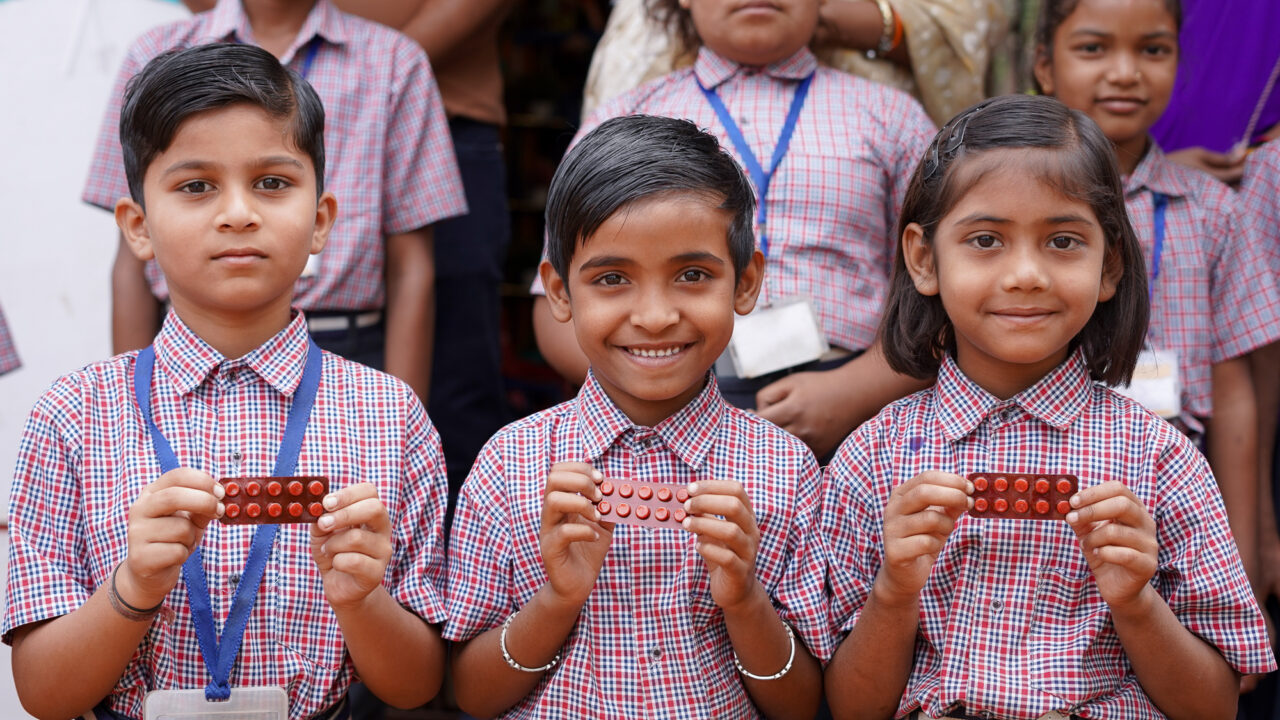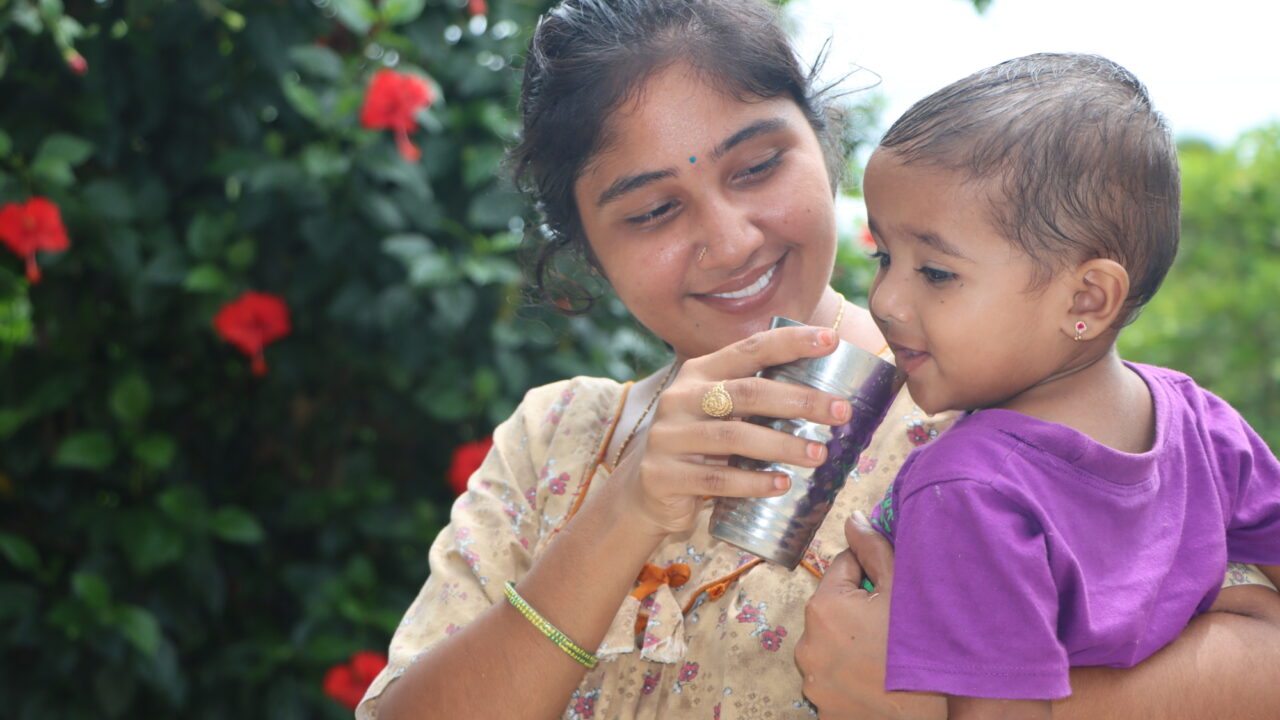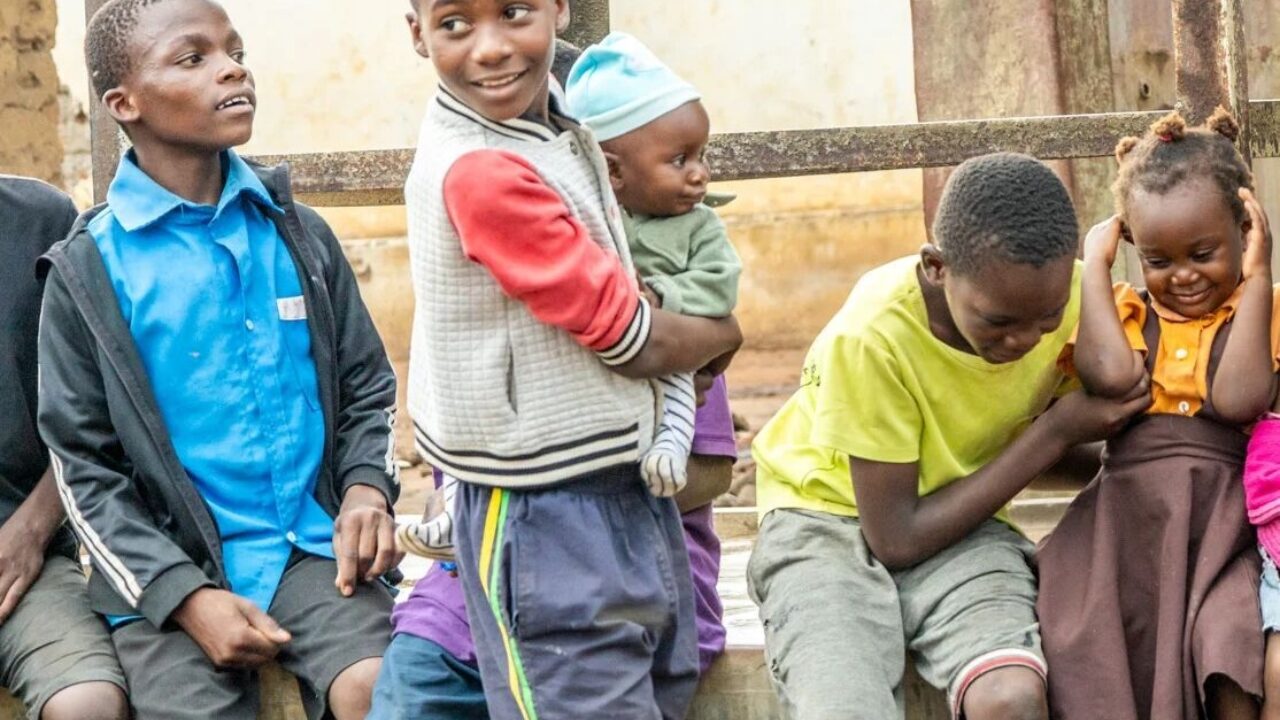Natural disasters seldom come with warning signs, yet their devastating effects on life and livelihood can be profound and long lasting. When phenomena such as cyclones rip through the heart of communities, access to water treatment solutions that make water safe enough to drink is indispensable.
“Our Safe Water Now program faced significant challenges, including Cyclone Freddy and the cholera outbreak,” explains Benson Botha, Evidence Action's Malawi Country Director. "After the cyclone devastated southern Malawi, we quickly responded by relocating chlorine dispensers to remote areas where displaced communities sought refuge from the flooding."
In March 2023, tropical Cyclone Freddy, one of the worst tropical cyclones on record, hit Malawi. Following the heavy rains, extensive flooding was reported across multiple districts, followed by flash floods that continued to wreak havoc on the society and the economy. President Dr. Lazarus Chakwera declared a state of disaster in the southern region. Over 2 million people were directly affected, and more than half a million displaced from their homes.
The devastation of the cyclone came at a time when we had just completed doubling the footprint of our Safe Water Now program across the East African region. With 16,240 chlorine dispensers now installed in eight targeted districts (Blantyre, Zomba, Mangochi, Balaka, Chiradzulu, Machinga, Mwanza, and Neno) in the Southern Region of Malawi, we are reaching 15% of the entire Malawi population with access to safe water.
In two of these districts, Blantyre and Mwanza, we spoke to community members about their experiences accessing safe water in the wake of the cyclone.
Kachoka village in Zomba district experienced severe impacts from Cyclone Freddy.
For a time, there was reprieve. Community leader Raphael Onaminka says that the installation of the sole chlorine dispenser near the borehole prior to the cyclone reduced the need for residents to travel to find safe water sources.
Following the storm’s deluge, the challenges Kachoka community members faced once again returned, as both their borehole and the chlorine dispenser beside it were submerged.
Many people in the village struggled to find other sources of safe water. Raphael mobilized resources for the construction of a protected hand dug well to ensure the village had access to a water source. Evidence Action then partnered with local government leadership to install a new dispenser. With their nearby access to safe water restored once again, Raphael and community members describe the new well and chlorine dispenser as “life-changing.”
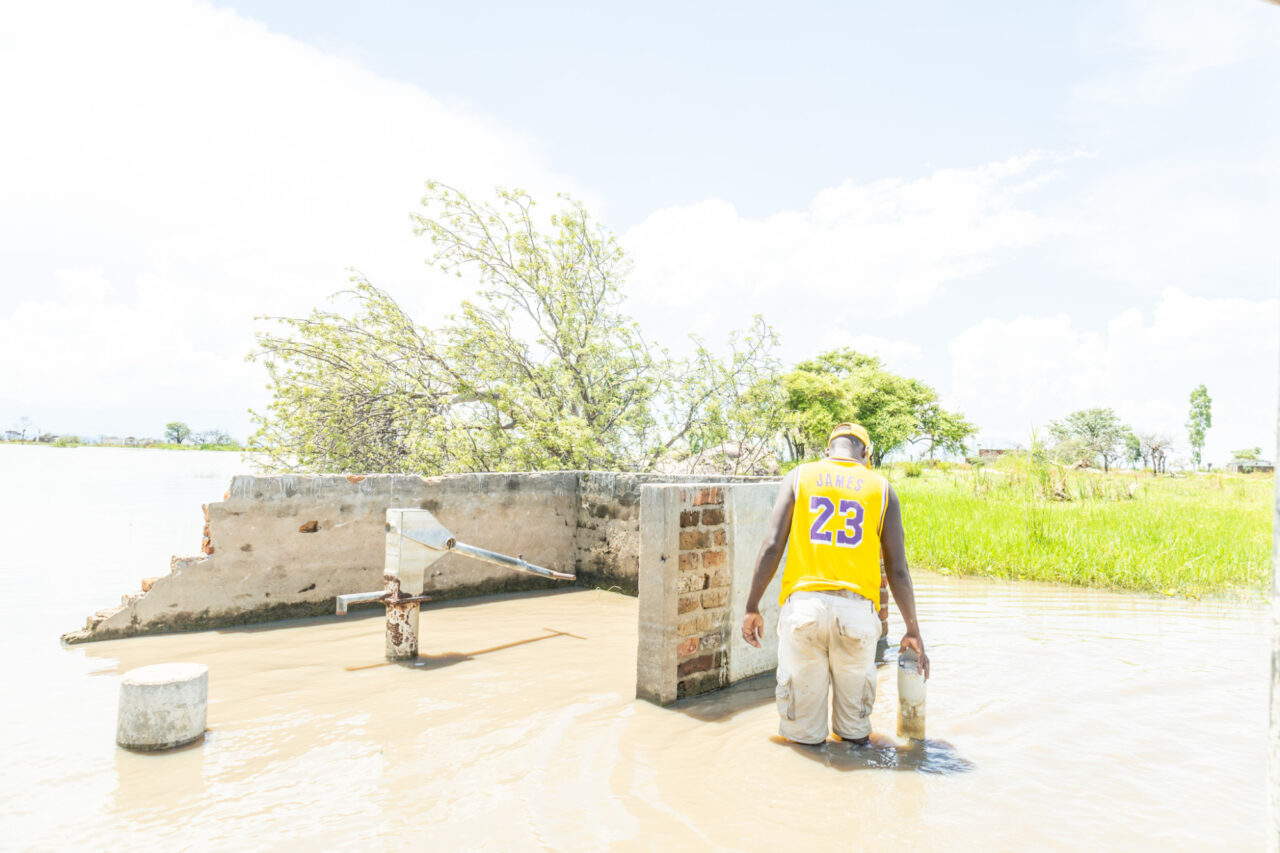
In Zomba District, near the shores of Lake Chilwa, lies a central market point known as Kachulu. Cyclone Freddy expanded the territory of the lake, submerging vast expanses of land and separating areas that were once accessible by foot. Now, bearing in mind that 72% of Malawians live below the daily poverty line of $2.15, community members must pay about $0.59 for a one-way boat ride across the expanded lake just to go about their daily routines.
Safe Water Now volunteer promoters Elida Nachekwa and Modelangi Lastone reveal that the whole community used to have just two water points with no chlorine dispenser before Evidence Action came. “When they installed a dispenser here in Kachoka village, it shortened the distance we had to go to access safe water,” says Elida, adding that, “While we now have access to safe water, it's unfortunate that in surrounding areas you can see pit latrines have been dug so close to water sources, which poses a threat to our health. We need to continue to sensitize communities to use these chlorine dispensers, which are the only source of safe and clean drinking water now.”
The immediate aftermath of Cyclone Freddy saw the submergence of the community's water sources and access points, leaving residents without reliable access to clean water. Cedric Shitezi is in charge of monitoring public water and sanitation health in the locality.
“It was an almost impossible task for local leaders to access funds to dig new boreholes and restore access to clean water,” he says. The installation of dispensers proved to be the most effective means to safeguard the health of sprawling communities around the expanded lake.
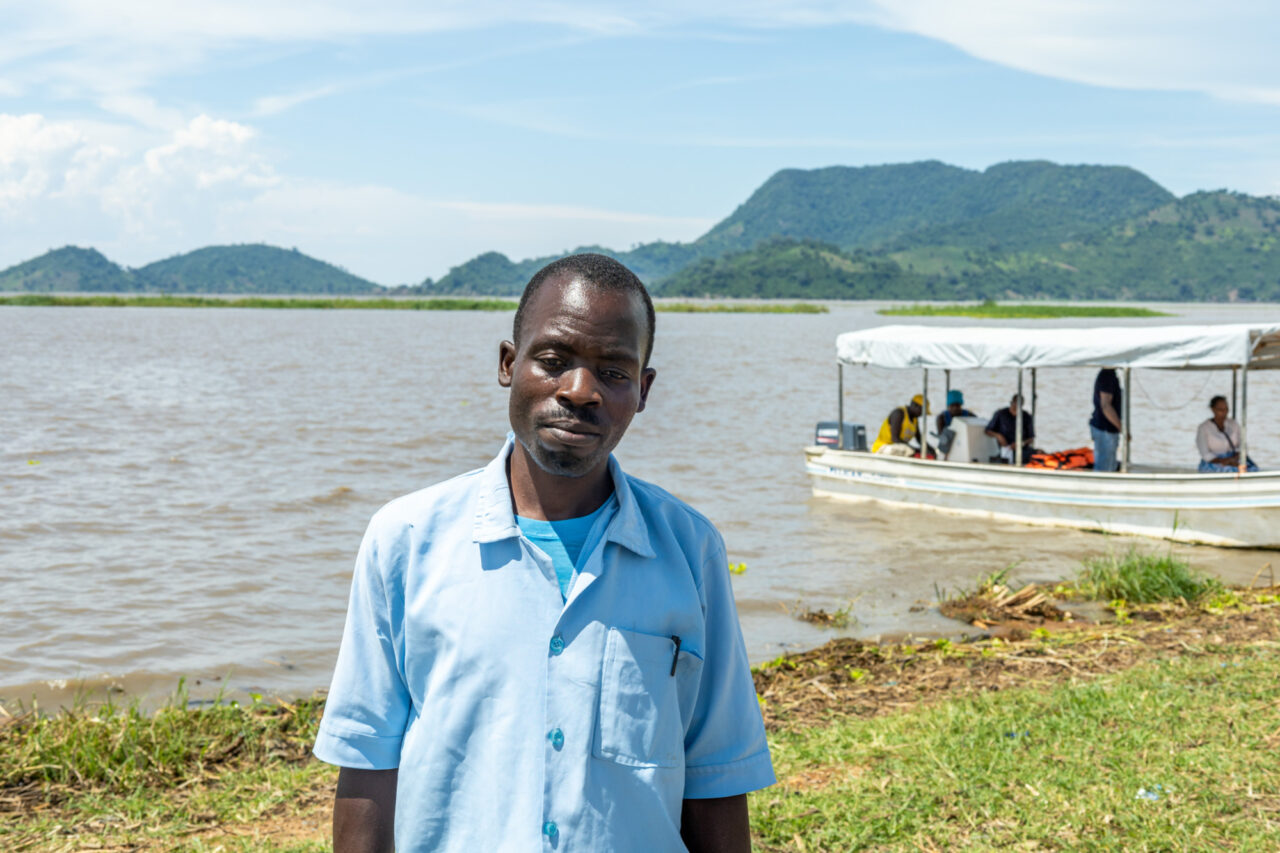
Prior to Safe Water Now’s arrival in the area, government personnel, referred to as health surveillance assistants (HSAs), were expected to visit every household in the communities as they administered granular chlorine for water treatment. With the labor intensive efforts of covering wider areas, the risk of chlorine overdosing was higher.
After the rollout of chlorine dispensers in the region, the workload of HSAs was transformed, as they were now able to focus on reaching even more of the population for sanitation assistance and awareness.
Malawi’s ongoing weather threats and the severity of the current cholera outbreak underscore the critical need for safe water solutions to protect vulnerable communities.
|
“Partnership with the Government of Malawi, at national, district and community levels, has been instrumental in our response efforts, demonstrating the collective impact we can achieve in safeguarding public health during times of crisis," says Benson Botha.
"We see great potential for further collaboration and innovation to protect health and promote overall wellbeing and resilience in communities.”
With rapidly intensifying effects of climate change, including cyclones and resultant flooding, the World Health Organization warns that we will continue to see an upsurge in cholera outbreaks as communities experience reduced access to clean water. More than ever, it is imperative to invest in reliable and sustained water treatment solutions for the health of children and communities.
